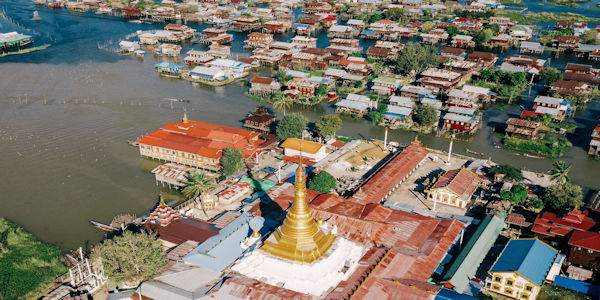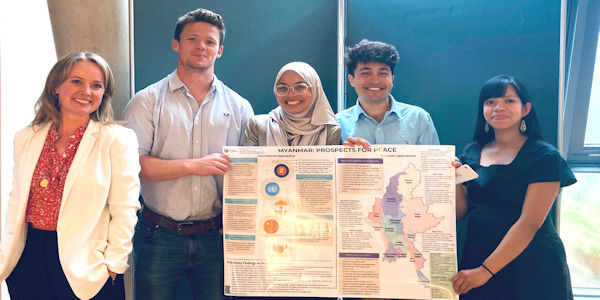Welcome to the Pathways to Peace in Myanmar Project.
Our project maps the potential for domestic, regional and international pathways towards peace for the escalating conflict in Myanmar.
We are a small and focused research team of students led by a senior academic researcher, Dr Claire Smith (Senior Lecturer in Politics and IR). Our team includes advanced Politics and IR undergraduates, MA in Peace and Conflict Studies and MA in Social Research postgraduates, and a PhD researcher, from both the UK and Southeast Asia.
Working closely together, we are mapping out the potential for peace from multiple perspectives. We aim to inform and engage with UK based policymakers and stakeholders by producing policy-focused and accessible research outputs, including background papers, podcasts and summary posters. All our outputs are open- access and available below.
Update
Since the devastating 7.7 magnitude earthquake hit central Myanmar on 28 March, 2025, the need to understand the political, governance and conflict dynamics in this deeply insecure country are even more urgent as humanitarian aid struggles to reach those in most need. We will continue to gather data and evidence to inform policymakers and practitioners as they attempt to assist Myanmar.







